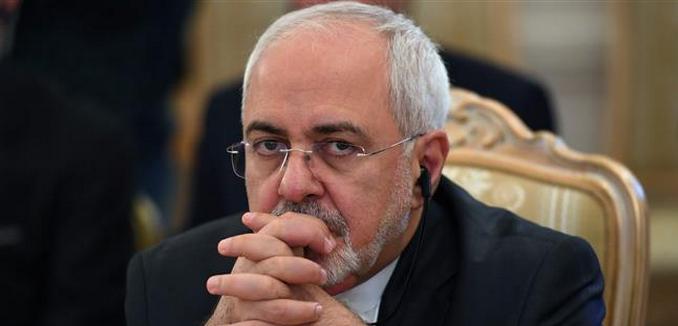Iranian Foreign Minister Mohammad Javad Zarif asserted that during nuclear talks in 2005 “Britain, France and Germany suddenly demanded that we abandon all enrichment activities” after which “the talks fell apart,” in an op-ed published Monday in The New York Times, a recollection that does not match the paper’s reporting twelve years ago.
Zarif was referring to the Paris Agreement, which was reached in November 2004. Iran, in that agreement, agreed to suspend all enrichment activity in exchange for “economic and political incentives,” while the two sides engaged in talks about Iran’s nuclear weapons program, as the Times reported at the time.
But in August of 2005, when Britain, France and Germany, or the EU3 as they were known, made an offer, according to the Times, “to provide Iran with economic, technological, security and political incentives if it permanently abandoned its conversion and enrichment activities.” Iran rejected the European proposal stating that it did not meet its “minimum expectations,” and resumed enriching uranium.
In other words, the EU3 did not bring up the terms “suddenly” but rather as part of ongoing talks, and those talks didn’t “fall apart,” but Iran ended them unilaterally.
The foreign ministers of the EU3 confirmed this sequence of events in an op-ed, subsequently published in The Wall Street Journal, “Last month, Iran decided to defy the international community by restarting uranium conversion at its plant in Isfahan, a unilateral step halting our talks.”
Even as Iran defied the United Nations Security Council to stop enriching uranium, it took nearly another year and a half before the Security Council imposed sanctions on Iran for its Nuclear Nonproliferation Treaty violations.
So rather than being the victim of unreasonable demands made by the EU3, as Zarif now claims, the contemporaneous reporting shows that Iran brought sanctions upon itself by insisting that it had a right to enrich uranium despite having “admitted to deceiving inspectors for 17 years about many of its activities.”
Zarif boasted in the op-ed that the 2015 nuclear deal marks “a triumph of diplomacy over confrontation” and that Iran has abided by the deal in “good faith” and maintained a military program that accords with “international law.”
However, a closer look at Iran’s recent activities show that the Islamic Republic has been cynically exploiting ambiguities in the nuclear deal, claiming that parts it doesn’t like don’t apply. For example, since the deal Iran has launched numerous ballistic missiles despite United Nations Security Council resolution 2231, which implements the deal, “calls on” Iran to stop developing ballistic missiles. Earlier this year, Germany, France, the United Kingdom and the United States charged that Iran’s launch of a satellite violated the terms of 2231, but Iran has insisted that resolution does not apply to its launches.
Resolution 2231 also extends embargoes on Iran’s transfer of weapons to other nations for five years from Adoption Day of the nuclear in October 2015. The UN has recently found that missiles launched by Yemen’s Houthi rebels have a “common origin.” Reuters reported earlier this year that Iran had established new routes for shipping weapons, including missile parts, to Yemen.
Iran has also consistently refused to allow inspectors from the International Atomic Energy Agency to have access to military sites, even though those are the places Iran is believed to have carried on much of its nuclear weapons research.
[Photo: PressTV ]




